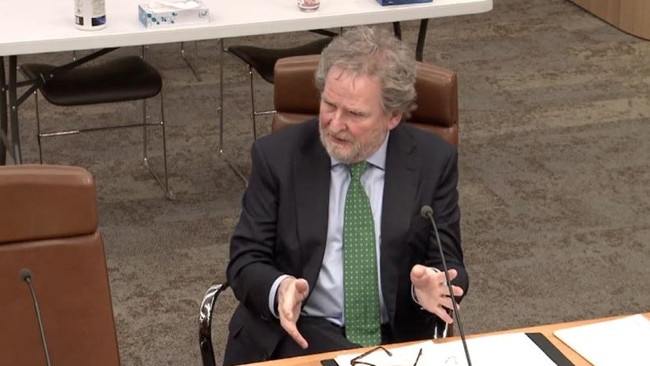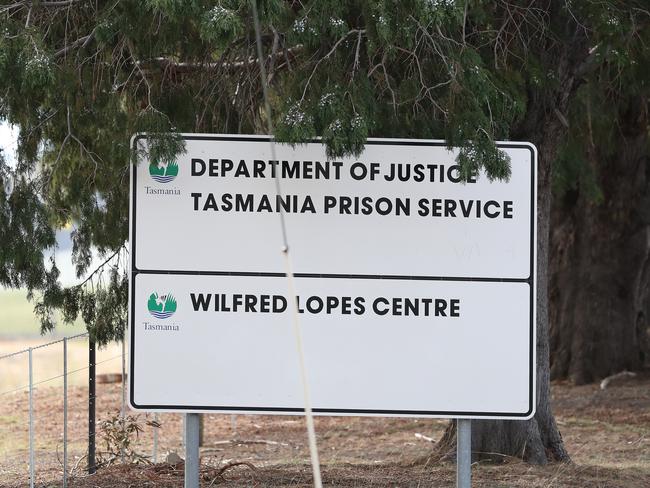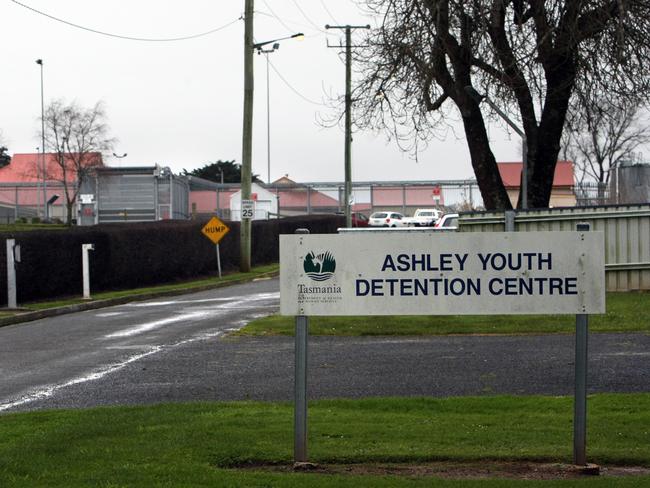‘Disturbing’: Tasmanian prisoners and youth detainees don’t spend enough time out of their cells
Tasmania’s Custodial Inspector has handed down his annual report, noting the state was the worst performed in Australia on a key metric, likely resulting in more bashings. His damning observations here.

Police & Courts
Don't miss out on the headlines from Police & Courts. Followed categories will be added to My News.
Tasmania is the worst performing jurisdiction in Australia when it comes to the number of hours prisoners spend outside their cells.
In his newly-tabled 2022-23 annual report, Tasmanian custodial inspector Richard Connock also notes a “disturbing” trend of lockdowns at the Ashley Youth Detention Centre.
Mr Connock said the worst-affected prisoners were those in mainstream maximum security at Risdon Prison – who sometimes only had an average of two hours a day out of their cells between July 2022 and June 2023 – compared to the intended 8.25 hours.
He said lockdowns, where prisoners or detainees could not leave their cells at all, seemingly due to staffing shortages, had “far-reaching ramifications” on their welfare.
Mr Connock said behavioural management units sometimes had as little as one hour out of cells a day, “but these units are regularly locked down for an entire day”.
“Tasmania is not alone in being impacted by lockdowns in prisons but unfortunately, for adult prisoners, it has the worst total average time out of cell in Australia,” Mr Connock said.

Mr Connock said the trend was also affecting Ashley.
“Sadly, lockdowns became an issue this reporting year in Ashley Youth Detention Centre,” he said.
“I have not previously observed lockdowns on a systemic level in youth detention in Tasmania and it is a disturbing precedent.
“Under my inspection standards, young people should have a minimum ten hours out-of-bedroom each day, but this was rarely achieved.”
Mr Connock noted that the United Nations Committee against Torture visited Ashley late last year and reported it was about the centre’s use of “solitary confinement”, which it said breached the Nelson Mandela Rules for the treatment of prisoners.
He said Tasmania’s high rate of assaults in adult custody was likely connected to the high levels of lockdowns.
Mr Connock made a number of other observations in his report, including that Tasmania’s prison population had “grown significantly during the reporting year” – from 609 in June 2022 to 736 in June 2023.
He noted a male prisoner who escaped prison custody while being treated at the Royal Hobart Hospital had sadly been later killed while at large in the community, leading to the introduction of new handcuff arrangements.
Mr Connock said there had been reports of a young person escaping Ashley, and that his office planned to conduct an inspection and consider this issue soon.
He also said there had been a “serious fire” at Ashley that had resulted in injuries.

Greg Barns SC, chair of the Tasmanian Prisoners Legal Service, said the impacts of lockdowns on prisoners and their loved ones was “devastating”.
Madeleine Ogilvie, Minister for Corrections and Rehabilitation, said the government remained “firmly committed” to addressing the issues raised by Mr Connock.
“The Tasmania Prison Service will consider this report and provide advice to me on any further improvements that can be made to ensure our prison system meets the needs of contemporary approaches in corrections,” she said.
The state government promised in 2021 to close down Ashley by the end of 2024, but has indicated it is unlikely to meet that deadline.





